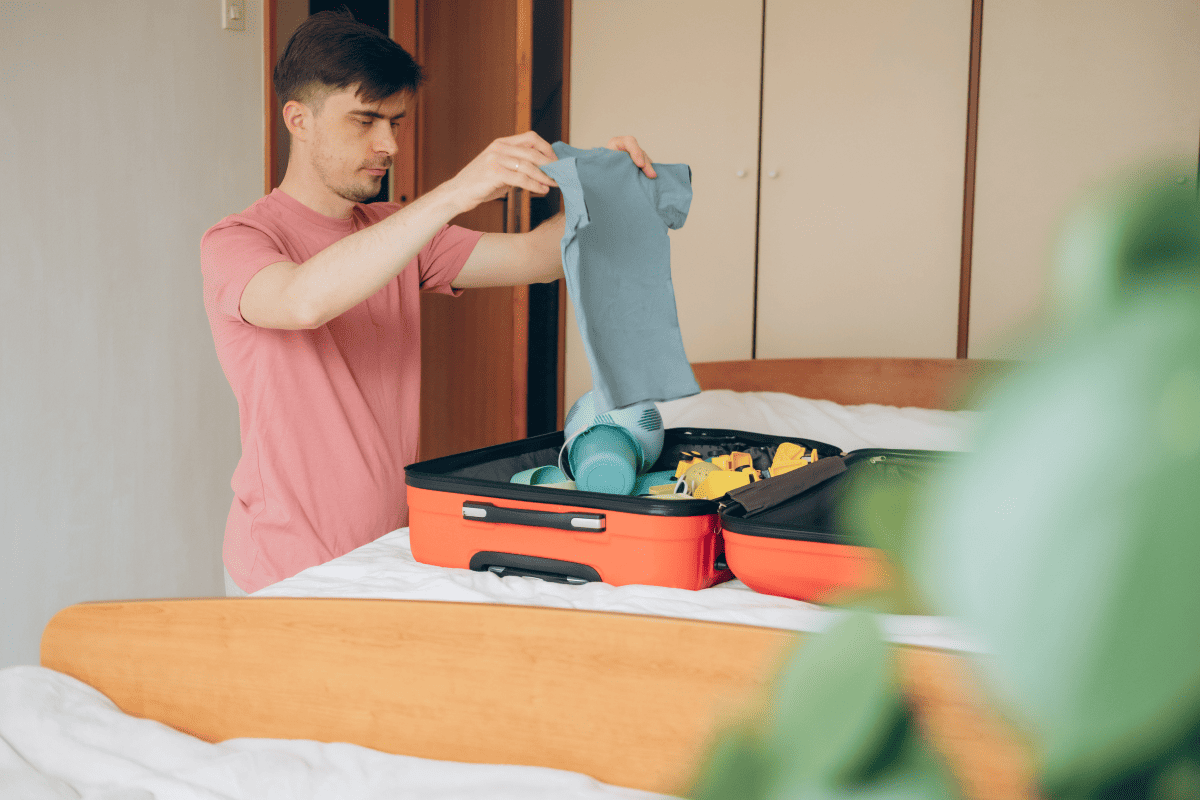Where Can I Find an Arkansas Drug Addiction Treatment Center?
You can find drug treatment centers throughout Arkansas, including in major cities such as Little Rock, Fayetteville, Hot Springs, and Fort Smith. However, these drug and alcohol addiction treatment is not confined to urban areas alone. There are rehab facilities situated in smaller towns and rural areas, ensuring that treatment is accessible to residents all across the state.¹ Individuals can use the locator tool offered by SAMHSA to find a facility in their area.
What Substance Use Disorders Are Treated at Rehab Centers in Arkansas?
Arkansas rehab centers offer treatment for a variety of addictions, including alcohol use disorder, opioid addiction, and more. Each facility may specialize in treating certain types of addictions or have a specific approach to treatment, so it is important to find the right fit for your specific needs.
Some facilities also offer dual diagnosis treatment, which addresses both substance use disorders and co-occurring mental disorders. It is important to seek treatment for both issues simultaneously, as they often contribute to and exacerbate each other.²
Addiction treatment can help with:
- Alcohol addiction
- Opioid addiction
- Stimulant addiction (including cocaine and methamphetamine)
- Prescription drug addiction
- Marijuana addiction
- Hallucinogen addiction
- Benzodiazepine addiction
- Synthetic drug addiction (including synthetic cannabinoids and synthetic cathinones)
- Dual diagnosis treatment (co-occurring substance use and mental disorders)
What Treatment Options Are Available in Arkansas Drug and Alcohol Rehab Centers?
Treatment at rehab centers in Arkansas may vary, but most facilities offer a combination of medical detoxification, therapy, and aftercare planning. Individuals can engage in these services in an inpatient rehab or during outpatient services.

Medical Detox
When an individual stops using alcohol or drugs, they may suffer withdrawal symptoms. These symptoms can range from mild to severe and, in some cases, can even be deadly. Drug or alcohol detox involves managing withdrawal symptoms safely while the body rids itself of drugs or alcohol. This is often the first step in treatment and can take place on-site at recovery centers, allowing clinical staff to administer intervention services and provide immediate medical care should it be necessary.
Evidence-Based Therapy
Therapy may include individual counseling, group therapy, family therapy, and behavioral therapies such as cognitive-behavioral therapy (CBT) or dialectical behavior therapy (DBT). These therapies help individuals address underlying issues that contribute to their addiction and learn coping skills to maintain sobriety.² This is an important part of addiction treatment, and rehab facilities provide a safe place to explore these issues and develop the tools for long-term recovery.
Aftercare Treatment
Aftercare planning is crucial in maintaining long-term recovery and may include ongoing therapy, support groups, or sober living arrangements. Arkansas also offers access to peer support programs such as Narcotics Anonymous and Alcoholics Anonymous for ongoing support in the community. Peer recovery specialists at these meetings can share similar experiences and help individuals work toward lasting recovery.
Get the Care You Need at a Drug Rehab in Arkansas
Woburn Addiction Treatment is a leader in the addiction treatment field, with proven success in facilitating long-term recovery. Our team of top clinical & medical experts specializes in treating addiction coupled with mental illness, ensuring that each person receives individualized care. Call us – we’re available 24/day, 7 days/week.
Are There Specialized Programs for Certain Groups at an Arkansas Treatment Center?
Yes, many drug addiction centers in Arkansas offer specialized treatment programs for different groups, such as women, men, LGBTQ+ individuals, adolescents, and seniors.¹ These programs may provide a safe and supportive environment for individuals with unique needs or experiences.
Some facilities offer faith-based or culturally sensitive treatment options to better serve the recovery journey of diverse populations. It is important for individuals to find a rehab center that aligns with their specific needs and values for the best chances of successful recovery.

How Much Does Rehab Cost in Arkansas?
The cost of drug and alcohol rehab in Arkansas can vary depending on factors such as the length of treatment, level of care, whether housing services are necessary, and services provided. Many insurance plans cover substance abuse treatment, and individuals can contact their providers for more information about what their benefits cover.
Many Arkansas facilities accept both public and private insurance plans, and there are several that offer payment plans or sliding-scale fees based on income.¹ Some may also offer scholarships or grants for those who cannot afford treatment. Talking with the staff at a treatment center can help you understand and explore financial options.
What is the Difference Between Inpatient and Outpatient Treatment?
Inpatient treatment, also known as residential treatment, involves living at a rehab center while receiving intensive therapy and support. This is beneficial for individuals with severe addictions or those who do not have a stable and supportive home environment.²
Outpatient programs allow individuals to live at home while attending therapy sessions and other recovery activities regularly. This may be a better fit for those with less severe addictions or those who have familial or work obligations that prevent them from attending inpatient treatment. ²
Outpatient services in Arkansas rehab facilities can be categorized into different types based on the intensity and frequency of care. These include:
Standard Outpatient Services
This is the least intensive type of outpatient service. It usually involves therapy sessions once or twice a week, typically comprising individual counseling and group therapy. This level of treatment is ideal for individuals with a less severe addiction or for those transitioning from more intensive treatment programs or residential services.
Intensive Outpatient Program (IOP)
IOPs require more commitment, often involving therapy sessions three or four days a week. These programs are designed for individuals who require a more structured treatment environment but cannot commit to full-time inpatient care at a residential facility.
IOPs may offer a variety of therapies and support services, such as relapse prevention training and family therapy. This is a flexible option for individuals who need more flexibility in alcohol and drug addiction treatment to continue with work or childcare or for young adults enrolled in school.
Partial Hospitalization Programs (PHP)
PHPs are the most intensive form of outpatient care, often requiring five to seven days of therapy per week. This level of care is suitable for individuals transitioning from an inpatient program or those with severe addictions who still have a stable living environment.
Aftercare Programs
These programs offer continued support after a person has completed an initial treatment program. They may include relapse prevention planning, support group meetings, alumni programs, and more. Aftercare is crucial for maintaining a sober life and reducing the risk of relapse.

Choosing a Treatment Program in Arkansas
Choosing between inpatient and outpatient treatment can be a difficult decision to make. To make the best choice, it can be highly beneficial to seek advice directly from treatment centers. Medical professionals at these centers can provide personalized advice based on an individual’s specific circumstances, mental illness, addiction severity, and other important factors.
They can also provide insights into the daily schedules, addiction treatment methodologies, and support systems in place in both residential and outpatient services.
Considerations when choosing a treatment plan may include:
- The severity and duration of the addiction
- Any underlying mental health issues that may require treatment
- Family or work commitments that may affect the ability to attend inpatient treatment
- Personal preferences for therapy styles and approaches
Resources for Addiction Treatment in Arkansas
If you or a loved one is struggling with addiction in Arkansas, there are several resources available to help. Some of these include:
Substance Abuse and Mental Health Services Administration (SAMHSA) National Helpline
SAMHSA’s National Helpline, available at 1-800-662-HELP (4357), is a valuable resource for assistance. This helpline offers information and referral services for substance use and mental disorders. Individuals can also find information on their website.
Arkansas Department of Human Services (DHS)
Individuals can call the DHS Addiction Support Line at 1-844-763-0198 to locate providers in their area. These calls are free and confidential. The DHS also provides mental health and addiction services to individuals in Arkansas with limited income, including counseling for substance abuse, mental disorder medication needs, and more. Individuals can reach out via their website for more information.
Community Support Groups
There are many community support groups available in Arkansas that offer free peer-to-peer support and resources for those struggling with addiction. These may include 12-step programs like Alcoholics Anonymous (AA) or Narcotics Anonymous (NA), SMART Recovery, and more. Many of these groups have local chapters throughout the state.

How Long Will Rehab in Arkansas Take?
The duration of rehab in Arkansas can vary depending on an individual’s needs and progress. In general, residential treatment programs can last anywhere from 30 to 90 days or longer, while outpatient programs may range from a few weeks to several months.² Ultimately, the length of time spent in rehab will depend on the individual’s recovery journey and specific treatment goals.
Factors that contribute to the length of time include:
- The severity of the addiction
- Co-occurring mental disorders
- Support systems in place
- Progress made during treatment
It is important to remember that the recovery process is a lifelong journey and that treatment may continue even after leaving rehab. Aftercare services can play a significant role in maintaining sobriety and preventing relapse.
Sources
- Substance Abuse and Mental Health Services Administration. (2022). National Survey of Substance Abuse Treatment Services.
- National Institute on Drug Abuse. (2018). Principles of drug addiction treatment: a research-based guide (third edition).


